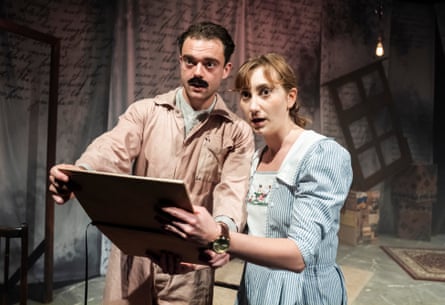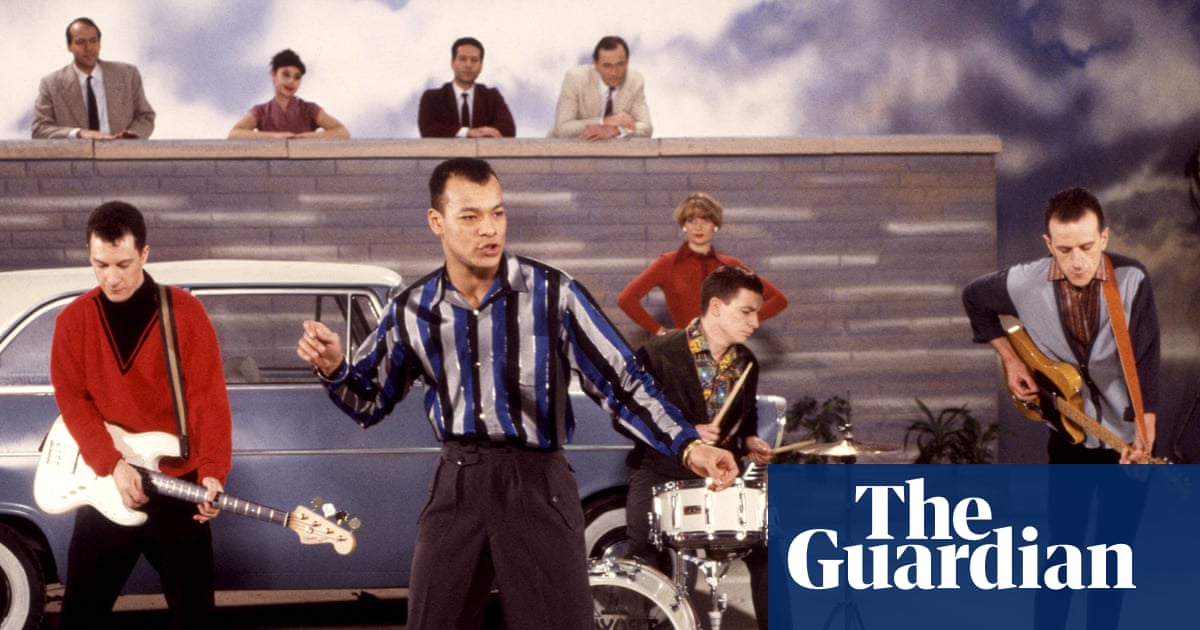If there were a theatre prize for grabby titles, Laurence Marks and Maurice Gran would win it. Much as Tom Stoppard’s Travesties, spotting that James Joyce, Lenin and the artist Tristan Tzara coincided in Zurich in 1917, audaciously fantasised their interactions, Marks and Gran even more boldly posit that, if Adolf Hitler had seen a shrink in Vienna in the early 20th century, it might plausibly have been Sigmund Freud.
Beginning with a title-explaining scene in which an Austrian mother seeks advice on her young son’s nocturnal bedwetting and nightmares, Dr Freud Will See You Now, Mrs Hitler contrives encounters across three decades: with Hitler as a patient; house-painter; hiker near the Freuds’ summer house in Berchtesgaden (giving, it is implied, ideas to Hitler); war-wounded corporal; and, ultimately, Führer.
This is, especially latterly, very dark material and those who know Marks and Gran only for the sitcom Birds of a Feather might be surprised to find them going here. In fact, their time-slip sitcom Goodnight Sweetheart (BBC, 1993-99) – in which a man was in effect committing adultery with a dead woman – might have interested Freud, and The New Statesman (ITV, 1987-94), with the character of Alan B’Stard MP, presciently lampooned the possibilities of rightwing populism.
Though always making clear its “what if?” nature, the play (a much-truncated chunk was broadcast on Radio 4 in 2007) feels historically and psychologically plausible in dialogue between Hitler and Freud that fizzes with intelligence and dangerous jokes. The psychoanalyst is fascinated by Patient A’s relationship with his cruel, dead father and his tendency, as an artist, to erase people from scenes. Patient A is engaged by the ideas Freud is developing about the “group mind” and the exercise of power. Chillingly, the patient is openly antisemitic to the doctor and his family but they tolerate it because words can’t hurt and these Viennese politics are a blip.

Sam Mac as Hitler convincingly charts Adolf’s growth from pathetic to psychopathic and suggests the Freudian connection between the two states. Ruby Ablett, portraying Anna Freud from 13 to her 30s, is given the most daring hypothesis – that sexual tension between Freud’s daughter and Patient A exacerbates his pathology and even antisemitism – but plays it strikingly and touchingly.
Jonathan Tafler gives a vivid sense of Freud’s questing intelligence but radiates such charm that it risks weakening the balance between protagonist and antagonist. There is a severe attack on the psychoanalyst’s sometimes contentious methods and assumptions but it comes from Hitler, in brown shirt and swastika, who by this point is clearly not to be trusted in the play or history. It can be argued, though, that the whole conceit is a critique of Freud, who catastrophically misunderstands Patient A.
A structure of short scenes in multiple locations is fine for radio or screen but Isaac Bernier-Doyle’s production too often needs the cast as furniture removers. But the props department should get an award for Freud’s ever-held cigar, which is very clearly not just a cigar.

 1 month ago
63
1 month ago
63

















































